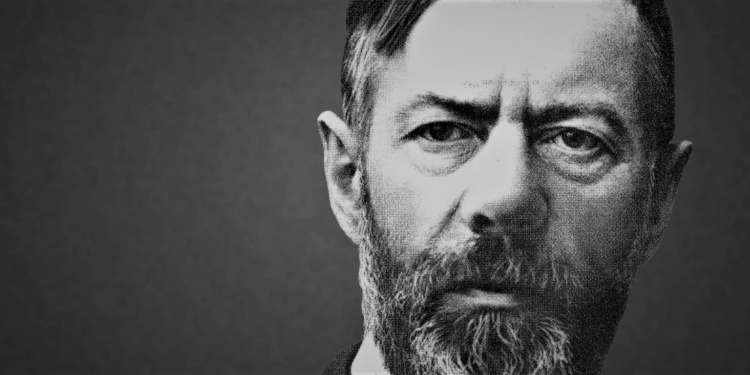Image: Fernand Léger, Les constructeurs sur fond bleu, 1950. Source: Musée national Fernand Léger.
IN INTERNATIONAL RELATIONS, Constructivism has significantly increased its prominence over the last three decades. To such a degree that a clear understanding of today’s shifting global-political scene would be impossible without a basic notion of what Constructivism means, and what it entails.
Constructivism is founded on the premise that everything socially constructed is neither natural nor inevitable, but rather the historical outcome of social and political action. Its thinkers seek to identify what can be challenged and changed in social structures through the examination and adjustment of social processes. For example, when dealing with international organization, a constructivist approach would stir structural change by challenging norms and values at work in international actor networks.
Barring theoretical digressions however, Constructivism remains an eminently pragmatic guide for individuals and organizations that wish to produce real change of their own scale. So, let us go back in time for a moment, as the best practical insight of Constructivism might very well be its own history as an idea.
Stefano Guzzini claims that Constructivism emerged in international relations debates around 1989. Further, he goes, Constructivism is a direct result of what sociologists Ulrich Beck and Anthony Giddens dubbed reflexive or radical modernity. Simply put, modern society became “reflexive” as soon as it awoke to the evident vulnerability of its social and natural environments.
Take climate change, for instance. The notion of reflexive modernity is all about society’s loss of innocence, as it finally arouses to be aware of the fragility of its own institutions and of the human species. Strictly speaking, through a slow and unseen process of destabilization, stretching across decades, the precarious reality of the modern condition gradually became an undeniable fact of the public sphere. And nothing can be taken for granted anymore.
The Constructivist idea, as it was being formulated in the 1990s, was analogous to what Max Weber called the disenchantment of the world by science and in significant ways, it was adamantly opposed to any prophecies of “end of history” that permeated the social sciences at the time. Reflexive modernity is rather an open project.
“The almighty father is dead,” writes Ulrich Beck, “and within systems and organizations new lines of conflict are opening up about what progress is and how to achieve it.”
The downfall of Soviet Marxism in 1991 inaugurated a new era for global-political thinking. The question of whether the combination of capitalism and democracy embodied by the West could be generalized to all countries of the world would thenceforth fuel debates within scholarly and political circles.
As globalization went full steam in the second half of the 1990s, international organizations were at the hot core of the world’s shifting structure. Issues such as economics and trade became prime objects of foreign policy, replacing topics such as military confrontation and muscle flexing. An age of prosperity was perceived to be dawning, and a gold-rush followed.
At the same time, occurred a shift in the regime of ideas underpinning the positions of the ever-increasing number of developing countries partaking in the global-political scene’s multilateral organizations.
First, several economic development theorists had established strong reasons to suspect that the economic wealth of rich, developed countries was systematically linked to the exploitation and dependence of poorer countries. In sum, writes Guzzini, “the arrival of the ‘Third World’ on the international scene made it impossible to ignore the fact that the international system was governed in a way that had little to do with liberal principles.”
The end of the Cold War led the West and its global institutions to face themselves in the cold mirror of economic justice. It was time to build a new project of political integration and globalization able to satisfy the needs of all countries – big and small.
At the World Trade Organization, the Constructivist approach has shown how, over time, developing countries acquired group identity, and managed construct unprecedented social and political bases for legitimacy within negotiations. The concept of fair trade thus emerged in the early 2000s, as the outcome of sustained effort led by like-minded individual countries and NGOs that consciously realized their collective potential.
Today, international organizations are deeply reflexive institutions. It should come as no surprise then, that Constructivism is such a popular strand of thinking within these circles. On the one hand, any international organization wants to show its member countries that it can solve contemporary problems. On the other hand, these institutions remain wary not to appear too isolated, or as opaque tools of global governance.
Out so many things, Constructivism teaches us that the instruments of change are by and large within our reach. And to stir change is as much a matter of identifying what these instruments are, as picking out those parts of the overall structure that can indeed be changed. In times of rapid change at massive scales such as these, Constructivism teaches us not to be daunted, though we still have much to learn.
Author
-
Murillo Salvador is chief editor at International-Organization.Com. In the past, he has worked at the Organisation for Economic Co-operation and Development, and at the Mission of Brazil to the World Trade Organization. He currently lives in Geneva.
View all posts
Related Articles
June 21, 2021
Changing Hands
Leading an international organization is a tough job. But it is also full of potential: The individual characteristics of the executive head can make or break international cooperation.
May 17, 2021
Revisiting Weber’s Spirit of Capitalism
The world must live up to tough challenges today, and the study of collective ethics under capitalism has never been more relevant. To that end, the work of Max Weber can still guide our reflection.
April 26, 2021
Grasping Malfunctional International Organizations
In a world of bad news, it can be tempting to point fingers and deflect blame. How can we make sense of the crisis of multilateralism in a context where confusion is so pervasive?


